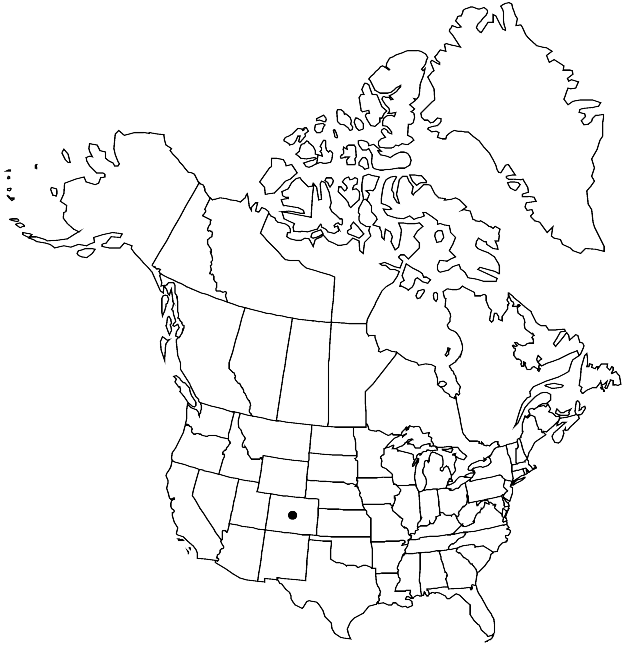Bartramia subulata
Bryol. Europ. 4: 53, plate 315. 1846.
Plants in lax to dense tufts, glaucous or dark green. Stems 0.5–1 cm. Leaves erect-appressed when dry, erect and slightly spreading when moist, narrowly lanceolate, 1.5–2.5 mm; base sheathing, shoulders well developed, firm, not eroded; margins plane to weakly revolute proximally, plane distally, serrulate distally, teeth single; apex subulate, usually intact; costa percurrent, prominent in distal limb, distal abaxial surface rough; basal laminal cell walls thin; distal cells 12–25 × 4–6 µm, prorulae high. Sexual condition autoicous or synoicous. Seta 1–2 cm, straight. Capsule erect, globose to ovoid, symmetric, 1–1.5 mm; operculum conic; peristome absent. Spores 24–35 µm.
Phenology: Capsules mature Aug–Nov.
Habitat: Bare soil in montane tundra
Elevation: high elevations (3500-4000 m)
Distribution

Colo., Europe, Asia (China, India, Japan).
Discussion
Bartramia subulata, limited in the flora area to the high mountains of Colorado, is a diminutive species with erect, symmetric capsules that might be mistaken for B. stricta. The latter species, however, has a well-developed exostome, the leaf base is not sheathing, and shoulders are absent or, at best, weakly developed.
Selected References
None.